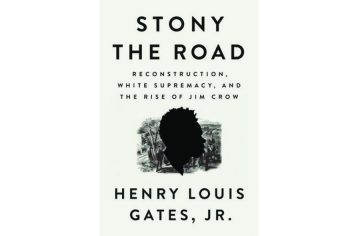Danny Heitman in The Christian Science Monitor:
 As a literary scholar and authority on African American history, Henry Louis Gates Jr. has written or co-written 24 books and serves on the faculty of Harvard University. But he didn’t achieve broad public attention until he began hosting “Finding Your Roots,” a popular PBS series in which celebrities explore their ancestry, often with surprising results. During an episode of a related program, “African American Lives 2,” comedian Chris Rock discovers that his great-great-grandfather, Julius Caesar Tingman, had fought for the Union with the United States Colored Troops during the Civil War, then served in the South Carolina legislature under its Reconstruction government. The revelation brought the typically glib Rock to tears. “How in the world could I not know this?” Rock asked Gates.
As a literary scholar and authority on African American history, Henry Louis Gates Jr. has written or co-written 24 books and serves on the faculty of Harvard University. But he didn’t achieve broad public attention until he began hosting “Finding Your Roots,” a popular PBS series in which celebrities explore their ancestry, often with surprising results. During an episode of a related program, “African American Lives 2,” comedian Chris Rock discovers that his great-great-grandfather, Julius Caesar Tingman, had fought for the Union with the United States Colored Troops during the Civil War, then served in the South Carolina legislature under its Reconstruction government. The revelation brought the typically glib Rock to tears. “How in the world could I not know this?” Rock asked Gates.
…Reconstruction, the federal policy through which the defeated Confederacy would be stitched back into the Union, began to a large degree as an act of deconstruction – the dismantling of a system of racial oppression. “The process of Reconstruction,” Gates tells readers, “involved nothing less than the monumental effort to create a biracial democracy out of the wreckage of the rebellion.” For a while, that radical reinvention of Southern society created dramatic results. Within a short time, Gates notes, “an estimated two thousand black men served in office at every level of government, including two U.S. senators and twenty congressmen.” But that glimmer of equality, a kind of Prague Spring for former slaves, wouldn’t last. The federal military occupation that enforced Reconstruction policies was costly. A war-weary nation, also worried by the Panic of 1873 and a subsequent economic depression, decided to declare victory and leave the South to its old habits.
The defeat of Reconstruction was also driven by racist attitudes in the North, Gates points out. Although Union leaders had fought against slavery, being an abolitionist “was not the same thing as being a proponent of the fundamental equality of black and white people, or the unity of the human species . . . to say nothing of equal citizenship rights and equal protection under the law.” Even Abraham Lincoln, the Great Emancipator, was at best ambivalent on the question of racial equality, Gates adds.
More here.
